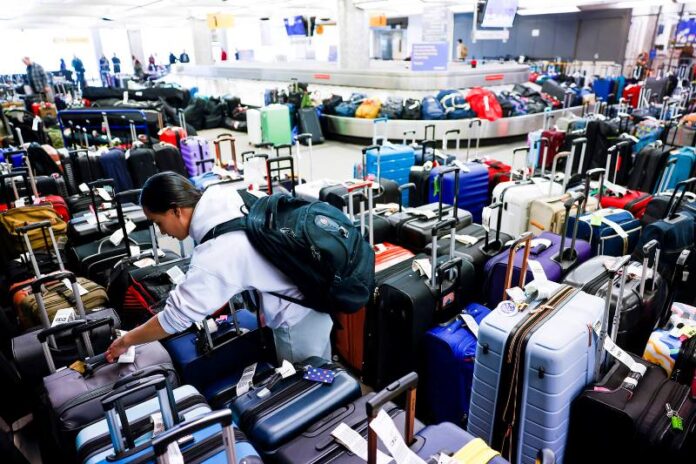The Société Internationale de Télécommunications Aéronautiques (SITA) said in its latest report that the number of bags mishandled by the aviation industry fell from 7.6 to 6.9 per 1,000 passengers in 2023.
The report which is contained in SITA’s newly launched Baggage IT Insights 2024 said the achievement was made despite passenger numbers rising above 2019 levels for the first time in five years, growing to 5.2 billion.
The report attributed the development to positive impact of technology investments.
A steep 63% drop in the mishandling rate from 2007 to 2023 happened as passenger traffic rose by 111%.
But the industry still faces challenges, particularly managing surges in baggage volumes.
On regional basis, the SITA Baggage IT Insights report shows a modest long-term drop in the baggage mishandling rate from 7.1 per 1,000 passengers in 2007 to 5.8 in 2023 in North America,
U.S. airlines reduced mishandled baggage by 9% year-on-year, thanks to more frontline workers and investments in baggage equipment and information technology.
Looking at Europe, the SITA Baggage IT Insights report shows that the region experienced the biggest long-term drop globally in the baggage mishandling rate from 16.6 per 1,000 passengers in 2007 to 10.6 in 2023.
Looking at Asia Pacific, the SITA Baggage IT Insights report shows a steady long term baggage mishandling rate at 3.1 per 1,000 passengers in 2007 and 3.0 in 2023.
However, this still reflects the best rate globally in terms of mishandled baggage.
Pushing ahead with the industry’s digitalisation agenda is vital, argues the survey, focusing on AI for data analysis and computer vision tech in automated baggage handling.
That push must include full automation, good communication, and full visibility of each bag’s journey.
Other SITA research reveals passenger anxiety about delays and cancellations (32% in 2023).
“It shows that two-thirds of airlines now offer unassisted bag drop, and 85% of airports offer self-service bag drop.
“This reflects industry demand for self-service tech for better passenger flows.
“At the same time, passengers want to use their mobile phones as they travel, including at bag collection. Today, 32% of passengers rely on bag collection information sent straight to their mobile.
Better communication and visibility for passengers will encourage more use of digital self-service and give passengers control over their journey,” the report said.
It further stated that collaboration is critical stressing that while airlines and airports share baggage data, there is still room for improvement.
At baggage collection only 58% of airlines share data while at the same time, 66% of airports share baggage delivery data with airlines.
Commenting on the report, the CEO of SITA, David Lavorel, said: “The improved mishandled baggage rate in 2023 is great news for passengers and for aviation. It’s especially impressive as global passenger traffic grew strongly in 2023 and is set to double by 2040.
“We clearly see from the SITA Baggage IT Insights results that baggage automation is the way forward, with more collaboration, more communication with passengers, and investments in new technologies such as AI and computer vision to make the journey smoother. From my own travel experiences, I can say this will be really welcome.
“Technologies like these are essential because they help us gather, integrate, and share data effectively. This means we can uncover important insights that make decision-making easier and more automated.”


























































